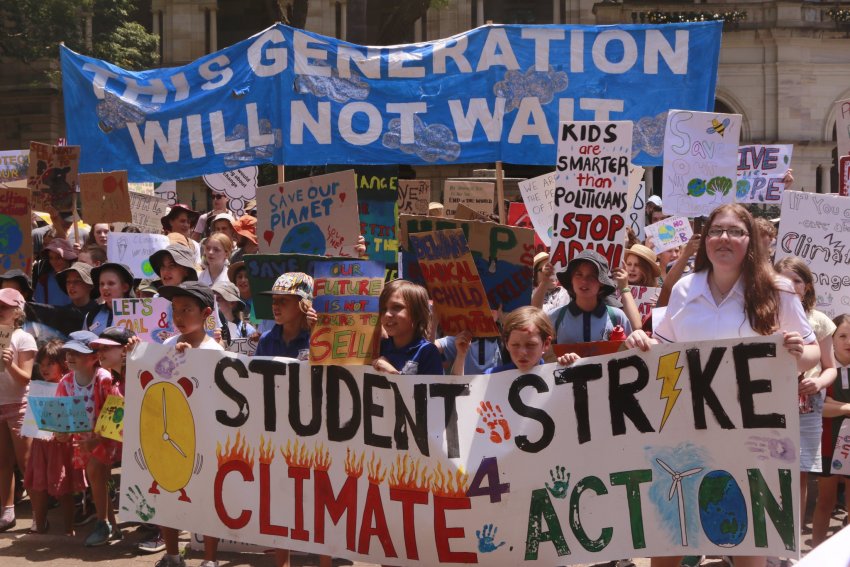
The latter part of 2018 will be remembered for the re-emergence of climate action on the national agenda.
Independent Kerryn Phelps’ win in the Wentworth byelection promising “meaningful environmental action” and Labor’s subsequent adoption of a 50% renewable energy policy by 2030 has come in the midst of researcher Rebecca Huntley’s findings that “climate and environmental concerns” have increasingly become “a test of leadership” for voters.
These centrist platforms, however, have been rightly superseded by the newest base of the climate movement: high school students.
Tired of the “dinosaurs in parliament”, students have brought a necessary and fresh energy to the climate debate.
More than 15,000 students rallied for meaningful climate action across 30 different locations on November 30, buoyed by anger at the major parties’ inaction.
Organised by the Australian Youth Climate Coalition (AYCC), the School Strike 4 Climate Action encapsulated a welcome rise in high school activism. It highlighted the fact that the youngest generation are active and engaged.
Given that they will be the ones bearing most of the effects of climate change in the decades to come, it is of vital importance that students are at the forefront of the movement.
The School Strike 4 Climate Action was inspiring. From the witty signs to the awe of onlookers as thousands of students descended upon parliaments and blocked roads, they displayed the best of humanity.
However, this momentum needs to be sustained to ensure the strike is not just a one-off.
That is why the latest Stop Adani protests on December 8 have been so important in confirming students’ hunger for change. Led by young organisers, students spearheading the push to stop the construction of another deadly coalmine has revealed the changing dynamics of the climate movement.
The rising involvement of students shows young people are tired of being ignored and are taking matters into their own hands.
Of course, any meaningful action on climate change must be clear on its targets.
As France’s gilets jaunes (yellow vest) protests have shown, working-class people cannot be held responsible for the sins of corporations. With 100 of the world’s largest companies causing 70% of global emissions, the case for systemic change has never been clearer.
That is why actions such as phasing out of plastic bags or installing solar panels on homes are commendable, but ultimately not enough to dismantle the capitalist system that prioritises profit over planet.
Despite not having power in society and not even being able to vote, students are the ones leading the national conversation on climate change. Through closer collaboration with trade unions and anti-racism and refugee campaigns, we will be unstoppable.
[Leo Crnogorcevic is a Year 11 student and a member of the Socialist Alliance and Victorian Socialists.]